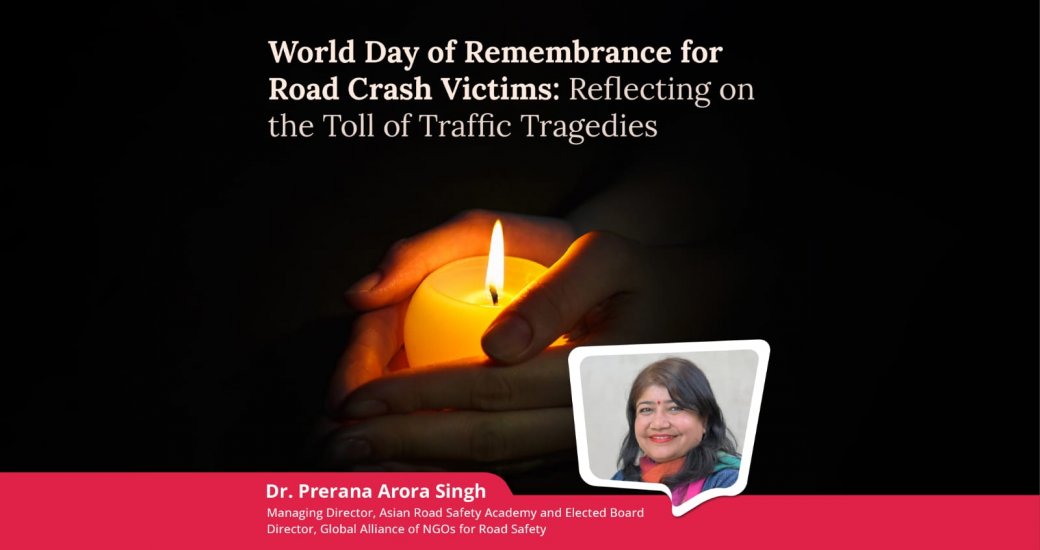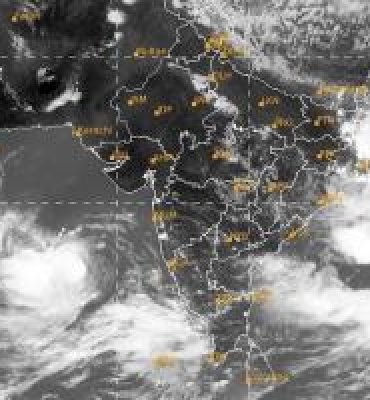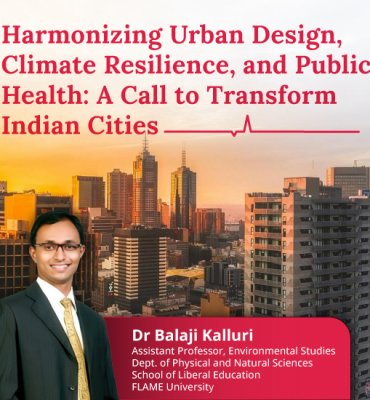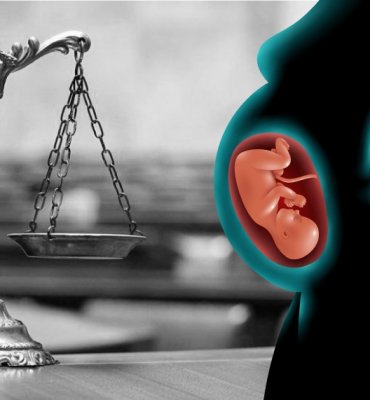
Robust post-crash care management services for road crash victims are paramount in addressing the multifaceted challenges that arise in the aftermath of an accident
Every year, on the third Sunday of November, the world comes together to observe the World Day of Remembrance for Road Traffic Victims. This solemn occasion serves as a poignant reminder of the devastating impact that road crashes have on individuals, families, and communities globally. The theme for this year's commemoration, "Crash Not Accidents," urges us to rethink our perception of road incidents and emphasizes the need for proactive measures to prevent them.
History and Significance
The World Day of Remembrance for Road Traffic Victims was established in 1993 by the United Nations to honor the memory of those who have lost their lives in road accidents and to acknowledge the suffering of their families. Over time, it has evolved into a platform for raising awareness about road safety and advocating for measures to prevent additional tragedies.
Data Speaks the Gravity
As we reflect on this solemn day, the sobering reality is that road crashes continue to claim millions of lives annually. According to the World Health Organization (WHO), approximately 1.35 million people die each year due to road traffic crashes, making it a leading cause of death globally. India contributes more than 11% of these global deaths, emphasizing not only the magnitude of the issue but also the urgency of addressing it comprehensively.
Traumatic Impact
The aftermath of a road crash extends far beyond the immediate loss of life. The traumatic impact ripples across society, affecting individuals, families, and communities profoundly.
Financial Impact
Furthermore, the economic toll from lost productivity, resulting from injuries, disabilities, or fatalities, exacerbates the financial strain on societies. The cost of medical treatment, rehabilitation, and long-term care for survivors can place an enormous burden on healthcare systems and families alike.
Social Impact
Communities bear the emotional brunt of road crashes as they witness the loss of loved ones, endure the emotional toll of grief, and grapple with the long-term consequences. The social fabric weakens as families are shattered, leaving behind fractured communities struggling to cope with the void created by these tragedies.
Psychological Impact
The psychological toll of road crashes is immeasurable. Survivors often grapple with post-traumatic stress disorder (PTSD), anxiety, and depression. Witnesses, including first responders, may carry the emotional scars of the scenes they encounter. Families left behind endure the anguish of grief and loss, with lasting effects on their mental well-being.
The Call to Follow Traffic Rules
On this World Day of Remembrance, it is crucial to emphasize the role each individual plays in preventing road crashes. Adhering to traffic rules is fundamental to improving road safety, not merely a legal obligation but a collective responsibility that can save lives and mitigate the far-reaching consequences of road incidents.
Improving the Situation
Strict adherence to traffic rules is fundamental to improving road safety. Speed limits, seatbelt usage, and avoiding distractions while driving are essential measures to protect lives. Governments, law enforcement agencies, and communities must work collaboratively to enforce these rules effectively.
Education and awareness campaigns play a pivotal role in shaping a culture of responsible road use. Initiatives that educate the public about the consequences of reckless driving, the importance of pedestrian safety, and the dangers of impaired driving contribute to fostering a collective commitment to safer roads.
Investing in infrastructure, such as well-maintained roads, proper signage, and efficient traffic management systems, contributes not only to the overall safety of road users but also to the prevention of accidents.
The Need for Robust Post-Crash Care
Robust post-crash care management services for road crash victims are paramount in addressing the multifaceted challenges that arise in the aftermath of an accident. Beyond the immediate response to injuries, a comprehensive and well-coordinated post-crash care system is essential to ensure the physical, emotional, and psychological well-being of victims. Timely and specialized medical attention can significantly impact the recovery process, minimizing long-term disabilities and improving overall outcomes. Moreover, post-crash care extends beyond medical interventions to encompass rehabilitation, counseling, and support services that aid victims in reintegrating into their communities.
Remember. Support. Act
As we observe the World Day of Remembrance for Road Traffic Victims, let us honor the memory of those we have lost by committing to a safer, more responsible approach to road use. By understanding the profound impact of road crashes on individuals, families, and society as a whole, we can collectively work towards a future where traffic incidents are not regarded as accidents but as preventable tragedies that demand our attention, commitment, and action. Only through a concerted global effort can we hope to stem the tide of road crashes and create roads that are safe for everyone.
About Dr. Prerana Arora Singh
Managing Director of the Asian Road Safety Academy, India
CEO and Managing Trustee, People's Trust Jaipur
Dr. Prerana Arora Singh, a survivor of a road crash, has dedicated her life to advocating for road safety and post-crash care management for the last two decades.
Her expertise extends to providing consultancy services for various State governments as well as projects by the Asian Development Bank and the World Bank.
Her groundbreaking Ph.D. thesis, “Road Safety System and Post-Crash Care Management Practices in India,” has made significant contributions to road safety practices.
She has achieved yet another milestone by becoming the first Asian woman elected as Director of the Board of the Global Alliance of NGOs for Road Safety in Switzerland.










